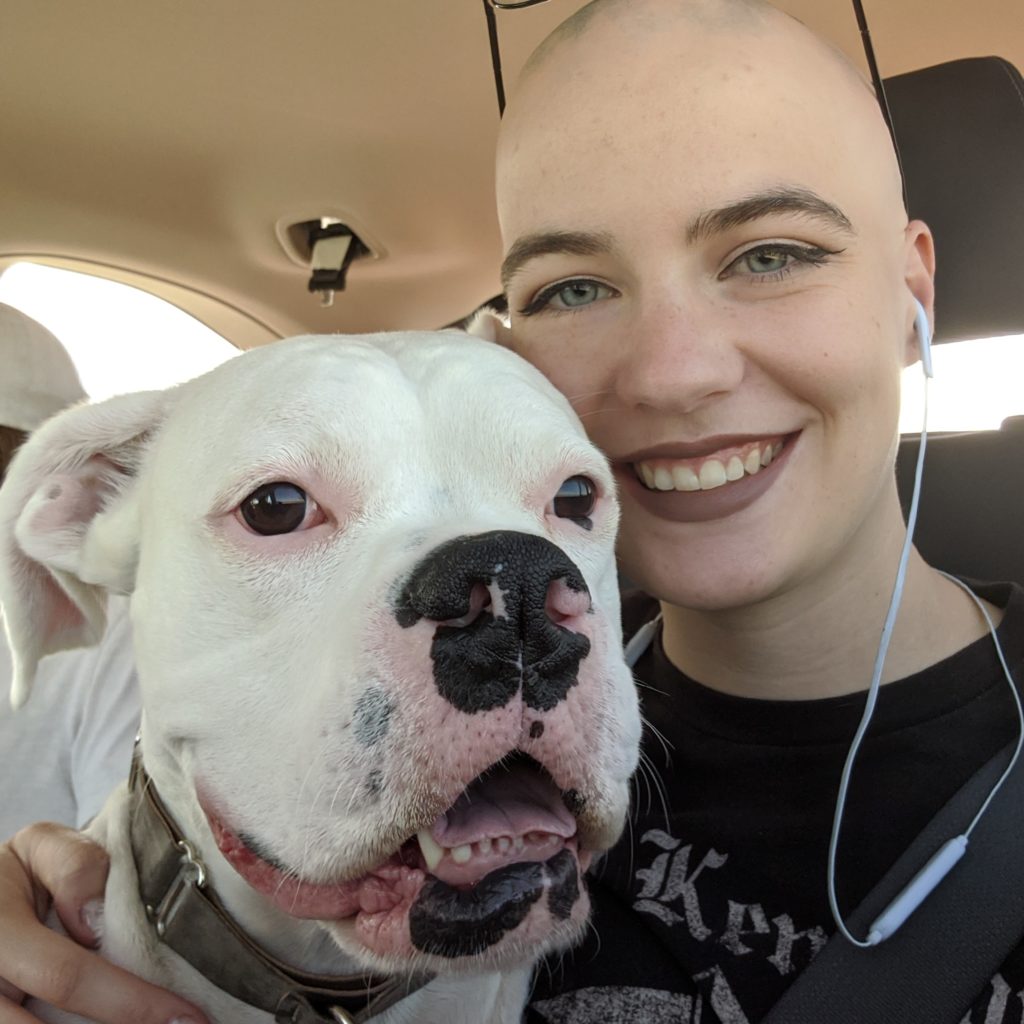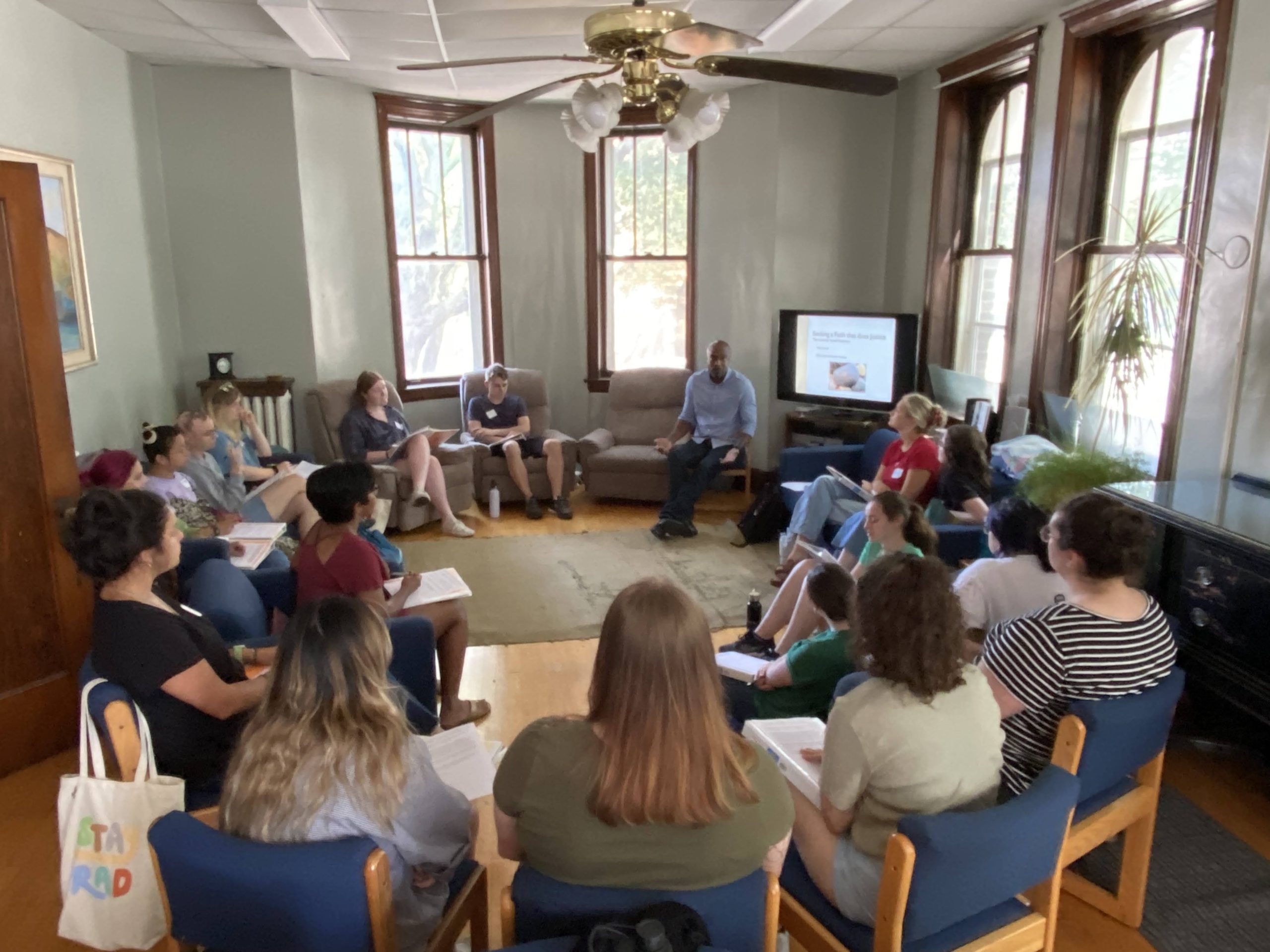What are you doing after graduation?”
It’s the question that every college student dreads until they actually know the answer; and even then, it’s sometimes hard to respond. I’m a self-described genderqueer, a sexual deviant who decided religion wasn’t for them. So when the people who knew me asked me this question, how could I explain that I would be spending a year in a Catholic fellowship program? In all honesty, I usually didn’t.
My relationship with religion is complicated. I grew up going to a Lutheran church for several years and joined my grandpa for Methodist services on the holidays while my grandma preferred Catholic mass. I was 13 or 14 when I told my parents I didn’t want to be confirmed. This was around the same time that Minnesota, my home state, was wrestling with the gay marriage “issue”. There I was, a closeted queer teen who wasn’t even fully aware of their queerness, seeing people and family who had always treated me kindly show an unpleasant side to their “faith”. It didn’t become any less complicated as I grew up, and certainly not when I ended up at a small liberal arts college that held on to plenty of problematic traditions in the name of its Christian origins.
As I was (very slowly) dragging myself towards graduation at that college, I resisted making plans for the future. With the uncertainty of the covid-19 pandemic still permeating every aspect of life, deciding what to do post-graduation was even more daunting than it might normally be. As people suffered physically, emotionally, and financially from covid, I knew I couldn’t see myself doing anything unless it was related to social justice. How could I not, in a world racked with a pandemic, climate crisis, an ever-widening wealth gap, and an overall dangerous re-assertion of racist values around the globe? In my home state, there were revolutions happening. The community came together to fight for racial justice and the abolition of the police state in Minneapolis. Up North, people put their lives on the line to protect our land, water, and indigenous peoples’ rights in the fight against Enbridge’s Line 3 tar sands oil pipeline.
After meeting with a career counselor, I begrudgingly agreed to check out a virtual career fair. Overwhelmed with the over-representation of corporations and fearing that I wouldn’t find anything even remotely appealing to me, I came across the Amate House program. That day, it seems, I was the only one who came across it. Alone with the recruiter (now my house coordinator), Unity, I resolved to engage fully. What did I have to lose? We hit it off talking about social justice and I was wishing I had put even a little effort into getting dressed, but I was grateful that she couldn’t see my pajamas beyond her computer screen.
It was only after that meeting that I discovered Amate was a Catholic organization, and I had all but made up my mind to apply. I wanted to live in a big city with other 20-somethings and do work that gave back to the community, so Amate seemed like the perfect fit. As I closed the zoom window, I noticed the dove shape in the Amate logo and googled the organization…What was I getting myself into?
Something incredible, as it turned out. I kept my own faith that the house coordinators weren’t pulling my leg when they told me Amate was welcoming of all religious backgrounds or lack thereof. When I finally arrived in Chicago, I was terrified, to be frank. Graduating college in a global pandemic had done nothing to help my mental health, and I had never lived this far from family or my best friend, Eddie. And I was convinced I would be totally out of place among the other fellows.

My best friend Eddie, and me.
As usual, I was totally overthinking and catastrophizing everything. That isn’t to say that adjusting to Amate was easy – moving away from everyone you know and love never is. But I was pleasantly surprised. For the first time in my life, I met Christians who talked about dismantling systems of oppression and who actually acted upon the teachings of Jesus Christ. Our first couple days of orientation were spent at the David Darst Center, named after one of the Catonsville Nine, who were a group of radical Catholics who stole and burned Vietnam war draft files in an act of protest. We got to do a training with the Coalition of Spiritual and Public Leadership, where we discussed white supremacy and its many tools of oppression: imperialism, colonialism, capitalism, xenophobia, sexism, etc. They shared the story of Jesus in the “den of thieves”, condemning the rich while the poor suffered, and our moral obligation to follow his example. These were cool Christians. Cool like my great aunt Adrie, the only nun I know and one of my greatest role models to this day. In her 80s, she still gives back to her community, teaching at a community college.
This is all to say that I’m beyond grateful that I took a chance on Amate and this community. I’m not excusing the institution of the Church for the suffering it has caused for many, but I finally have experiences to remind me of those who are serving the Christian faith’s true mission of compassion and solidarity. At the opening liturgy for the program, Amate house co-founder John Haggerty shared his own translation of amate – the Latin imperative of ‘love’- love, dammit! And I couldn’t agree more. The world is a rough place, but it won’t stop me from loving with a fighting ferocity.
I’m still wrestling with my own faith, but I know I can always find it in one place: people. Despite all of the bad news in this world and all the suffering, people never cease to surprise and amaze me. On the first of the month, Line 3 became operational. I came home from work weeping that day, and there were 8 people willing to support me. Even though it drives me nuts sometimes, living in this converted convent with 8 other people gives me hope. There are always people willing to fight for justice, and I happen to have found a wonderful group of them in the most unexpected of places.

